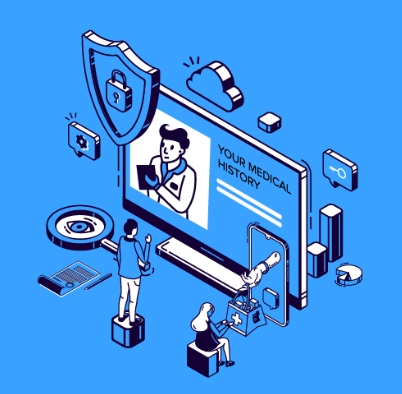In recent years, the healthcare industry has seen a significant shift towards digital health systems. These systems have revolutionized the way healthcare services are delivered and managed, leading to improved patient outcomes and increased efficiency. From electronic health records to telemedicine, digital health systems are transforming the way healthcare is delivered.
Enhanced Data Management
Digital health systems allow for the seamless management and sharing of patient data. This means that healthcare providers have quick and easy access to patients’ medical history, test results, and treatment plans, enabling them to make more informed decisions about patient care. This also leads to reduced errors in diagnosis and treatment.
Improved Communication
Digital health systems have streamlined communication between healthcare providers, patients, and caregivers. Through secure messaging platforms and telemedicine services, patients can easily communicate with their healthcare providers, schedule appointments, and access their medical records. This has improved the overall patient experience and has led to better health outcomes.
Remote Monitoring and Telemedicine
With the rise of digital health systems, remote monitoring and telemedicine have become increasingly popular. These services allow patients to receive medical care from the comfort of their own home, reducing the need for in-person visits to the doctor’s office. This is especially important for patients in rural or underserved areas who may not have easy access to healthcare services.
Artificial Intelligence and Predictive Analytics
Digital health systems also leverage artificial intelligence and predictive analytics to improve patient outcomes. By analyzing large sets of data, these systems can help healthcare providers predict and prevent adverse health events, identify patterns in patient data, and personalize treatment plans for individual patients. This leads to more precise and effective healthcare interventions.
Challenges and Opportunities
While digital health systems offer many benefits, they also present challenges such as cybersecurity risks, interoperability issues, and data privacy concerns. However, with proper implementation and ongoing innovation, these challenges can be overcome. The opportunities for improving healthcare delivery and outcomes through digital health systems are vast and exciting.
In conclusion, digital health systems have revolutionized the healthcare industry, leading to improved patient outcomes, increased efficiency, and enhanced communication between healthcare providers and patients. As technology continues to evolve, the possibilities for further advancements in healthcare delivery are endless. Be prepared to see even more innovation in the world of digital health systems in the coming years.

